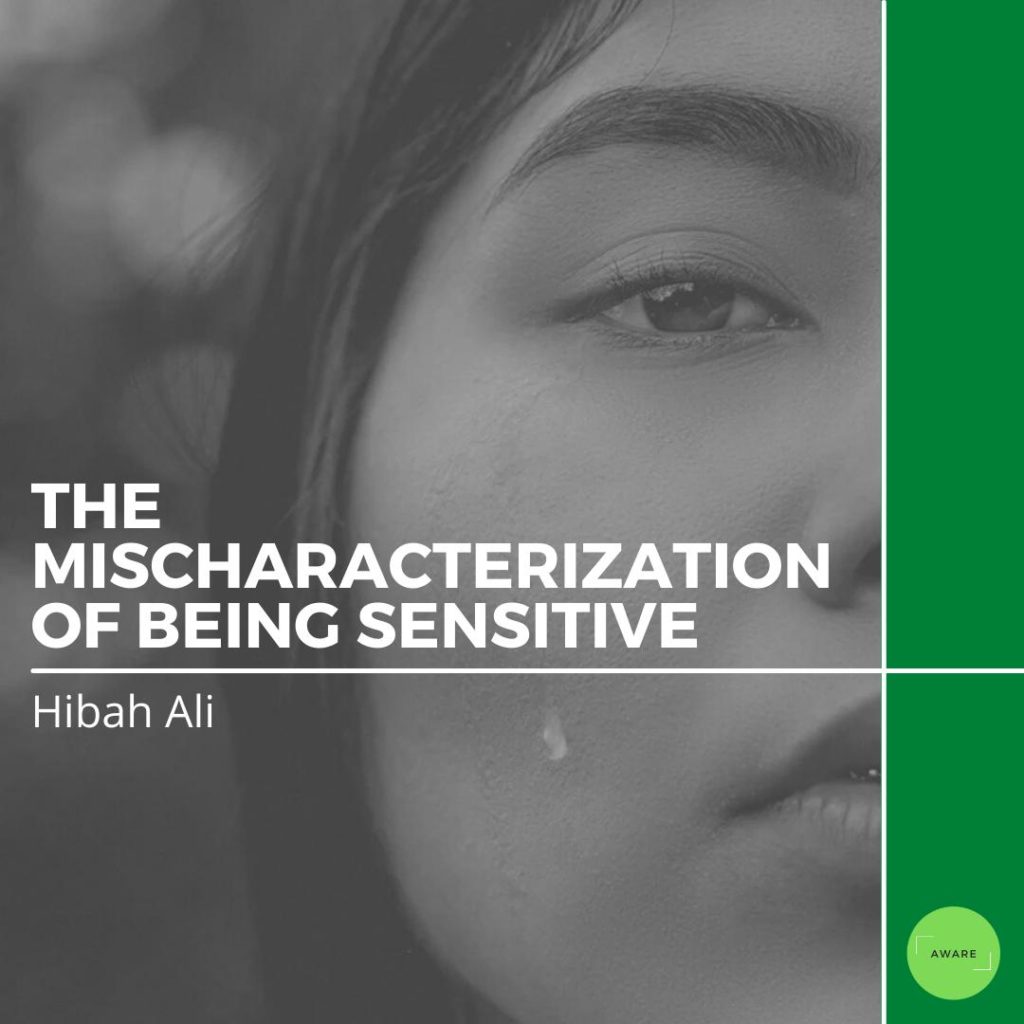Often, we hear the phrase casually thrown in conversation – someone calling another person “too sensitive” based on their reaction to a particular situation. Whether at dinner tables, office gatherings, or family discussions, people tend to highlight specific reactions as being “too much”, unnecessary, or blown out of proportion and attribute it to a heightened sense of individual sensitivity. There is a subtle judgement within the idea of being too sensitive. It sends an underlying message that perhaps the person is not thick-skinned or “tough”. Perhaps, they are lacking in some form of mental resilience, not being able to bear the situations that life can throw at them. However, if we genuinely analyze this belief, we can begin to see how false this thought process is.
The Stigma
It is understood that different people have varying levels of sensitivity. Some individuals can be more sensitive in comparison to others and vice versa. However, the issue here is when we begin to label people having more of a particular trait – such as sensitivity – as a liability and a mechanism that can hold people back, or even something you should be ashamed of. When, in reality, if this trait is harnessed and truly empowered by understanding it in its entirety, it can become one of the greatest strengths a person can have. The confidence in saying this comes from the inevitable truth that sensitive individuals are fierce in how they can empathize with others. Their heightened attunement to their internal environment and the emotions of others makes them invaluable friends, companions, and even coworkers. The ability to quickly gauge environmental cues that others may not allows them to be adaptable and quick thinkers. Additionally, they possess the talent to process information far more deeply than the average person. These strengths get lost in the normalization of the stigma, as sensitivity is automatically perceived as a weakness rather than as an inalienable strength. Therefore, this skewed narrative has to change by understanding the negative impact it has on sensitive individuals, being told constantly that one of their greatest assets is unwelcome within society.
Changing the Narrative
The phrase “do not be so sensitive” is a double-edged sword. It is essentially an attempt to signify to the other person to control their emotional impulses, keep them contained, and present an exterior that is far from real, all in an attempt to be “strong”. However, the irony lies in the fact that individuals do the opposite of displaying strength in doing so. By consciously shutting down their natural sensitivities, they also inhibit themselves from feeling compassion. They begin to internalize difficult emotions rather than express them, and a slow onslaught of numbness can set in. Therefore, in a world where it is deemed not cool to care, we need to flip the narrative and normalize that caring is, in fact, cool because it allows us to express the most authentic part of ourselves.
